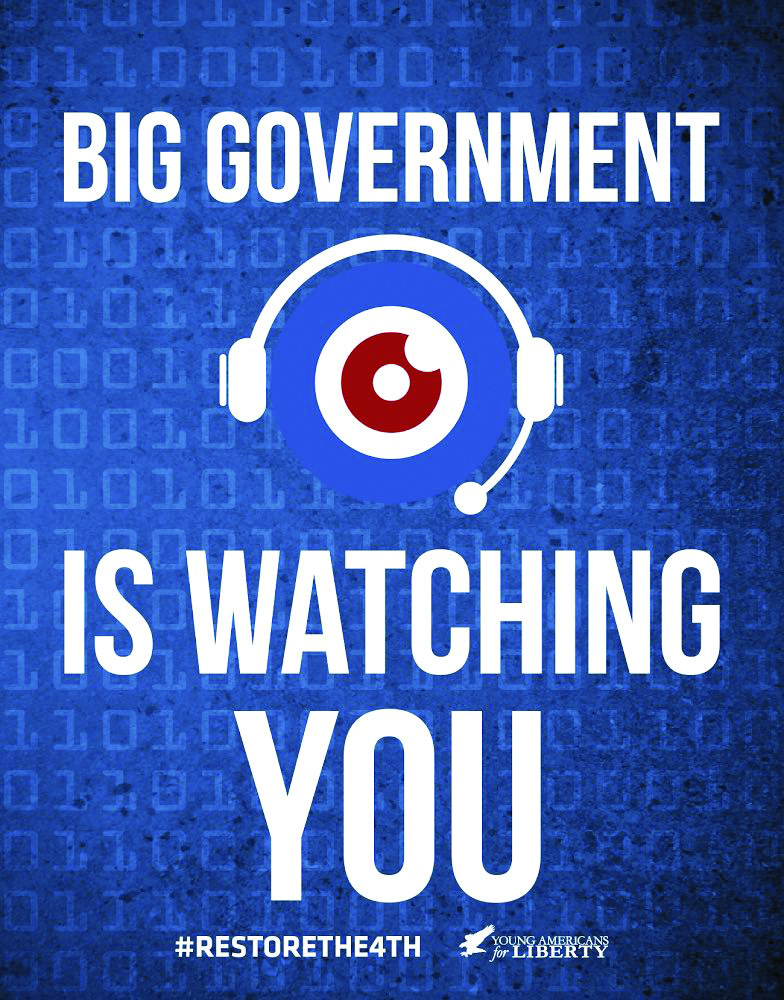The officers of the SLU Young Americans for Liberty believe that the government should not spy on its citizens and that such actions by the federal government are wrong, ethically and legally.
The Fourth Amendment to the U.S. Constitution states that, “the right of the people to be secure in their persons, houses, papers, and effects, against unreasonable searches and seizures, shall not be violated, and no warrants shall issue, but upon probable cause, supported by oath or affirmation, and particularly describing the place to be searched, and the persons or things to be seized.”
Essentially, this prohibits unreasonable searches and seizures, and that if the government deems one necessary, then it can only do so by issuance of a warrant that is judicially sanctioned by probable cause and specifically describes the place to be searched and the persons or things to be seized. Three court cases have expanded the protections of the Fourth Amendment considerably. Weeks v. United States established the exclusionary rule, making evidence obtained via unlawful searches and seizures inadmissible in courts; Katz v. United States expanded the definition of “search” by counting wiretapping, by physical or nonphysical intrusion, as a search and therefore requiring a warrant as well as establishing protections for a person’s “reasonable expectation of privacy,” which, in that case, applied to making private conversations public; and Kyllo v. United States stated that the use of thermal devices by the government on a person’s house constitutes a search and therefore requires a warrant. These are important cases because they expand the protections of people from unlawful searches and seizures by the government, factoring in the development of advancing technology.
It is especially legally wrong because it would go against the principles and rules established in the above mentioned court cases. An example of this is Section 215 of the PATRIOT Act, a.k.a. the “Library Records Provision,” which allows the government to require, without a warrant, businesses to hand over any records of any “tangible thing” in order to assist in an investigation to protect against international terrorism or clandestine intelligence activities. “Tangible things” have been interpreted by the FISA Courts to include books, records, papers, documents, and other items. This essentially creates a broad blank check for the federal government to search and seize information on its citizens without a warrant, under the assumption that it aids in the investigations of terrorism.
This section of the PATRIOT Act was passed in the wake of the 9/11 terrorist attack and was enacted to supposedly fight against terrorism in the United States. However, no one was anticipating this to lead to mass surveillance of the American population. It wasn’t until Edward Snowden, a whistleblower on the NSA, revealed this system of mass surveillance operating under Section 215. Snowden revealed that these searches and seizures were done in secret by the NSA, unbeknownst to the American people, and were not specific in what information or for who the NSA was looking. This goes directly against the protections of the Fourth Amendment as established by the above mentioned court cases and many others. If you agree or want to learn more, then come to the SLU Young Americans for Liberty meeting.



